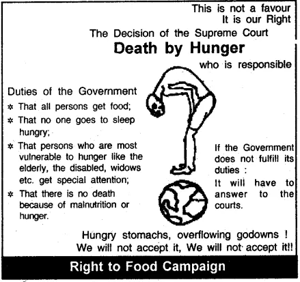Jammu and Kashmir Board Solutions for Exercise 6: Exercises
Jammu and Kashmir Board Social Science Solutions for Exercise - Jammu and Kashmir Board Solutions for Exercise 6: Exercises
Attempt the free practice questions from Exercise 6: Exercises with hints and solutions to strengthen your understanding. SOCIAL SCIENCE Social and Political Life–III TEXTBOOK FOR CLASS VIII solutions are prepared by Experienced Embibe Experts.
Questions from Jammu and Kashmir Board Solutions for Exercise 6: Exercises with Hints & Solutions
You read that one of the main functions of the judiciary is ‘upholding the law and enforcing fundamental rights.’ Why do you think an independent judiciary is necessary to carry out this important function?
Keeping the Sudha Goel case in mind, write the correct sentence as true and incorrect as false:
The accused took the case to the High Court because they were unhappy with the decision of the Trial Court.
Keeping Sudha Goel's case in mind, write true or the correct sentence and false for the incorrect sentence.
They went to the High Court after the Supreme Court had given its decision.
Keeping Sudha Goel's case in mind, write true for the correct sentence and false for the incorrect sentence:
If they do not like the Supreme Court verdict, then the accused can go back again to the Trial Court.
Why do you think the introduction of Public Interest Litigation (PIL) in the is a significant step in ensuring access to justice for all?
The sweep of the Right to Life, conferred by Article 21 is wide and far-reaching. ‘Life’ means something more than mere animal existence. It does not mean merely that life cannot be extinguished or taken away as, for example, by the imposition and execution of the death sentence, except according to procedure established by the law. That is but one aspect of the Right to Life. An equally important facet of that right is the right to livelihood because no person can live without the means of living, that is, the means of livelihood.
That the eviction of a person from a pavement or slum will inevitably lead to the deprivation of his means of livelihood, is a proposition that does not have to be established in each individual case. The present case that facts constituting empirical evidence justify the conclusion that the petitioners live in slums and on pavements because they have small jobs to nurse in the city, and for them, there is nowhere else to live. They choose a pavement or a slum in the vicinity of their place of work and to loose, therefore, the pavement or the slum is to loose the job. The conclusion therefore is that the eviction of the petitioners will lead to deprivation of their livelihood and consequently to the deprivation of life.
Re-read excerpts from the above judgment on the Olga Tellis vs Bombay Municipal Corporation case. Now write in your own words what the judges meant when they said that the Right to Livelihood was part of the Right to Life.
Write a story about the theme, ‘Justice delayed is justice denied.’
The following is a poster made by the Right to Food campaign. Read this poster and list the duties of the government to uphold the Right to Food.
How does the phrase “Hungry stomachs, overflowing godowns! We will not accept it!" Used in the poster relate to the photo essay on the Right to Food?

